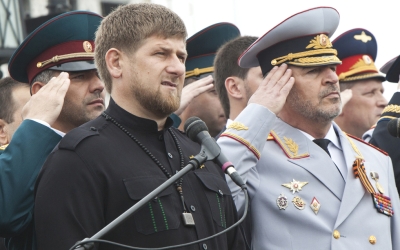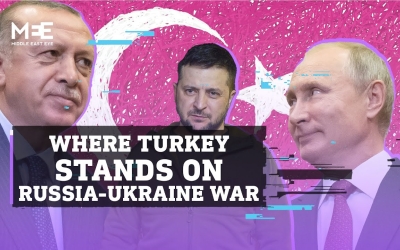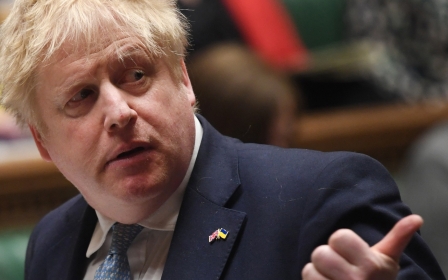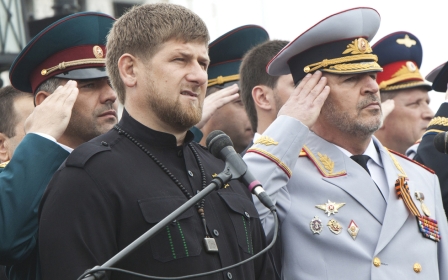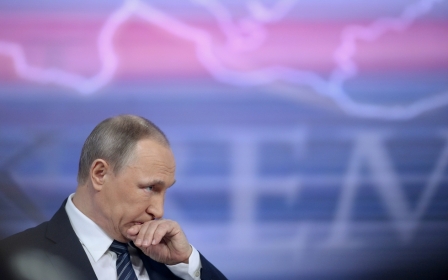Turkey's Caucasian minorities denounce Chechen leader Kadyrov as 'Putin's puppet'
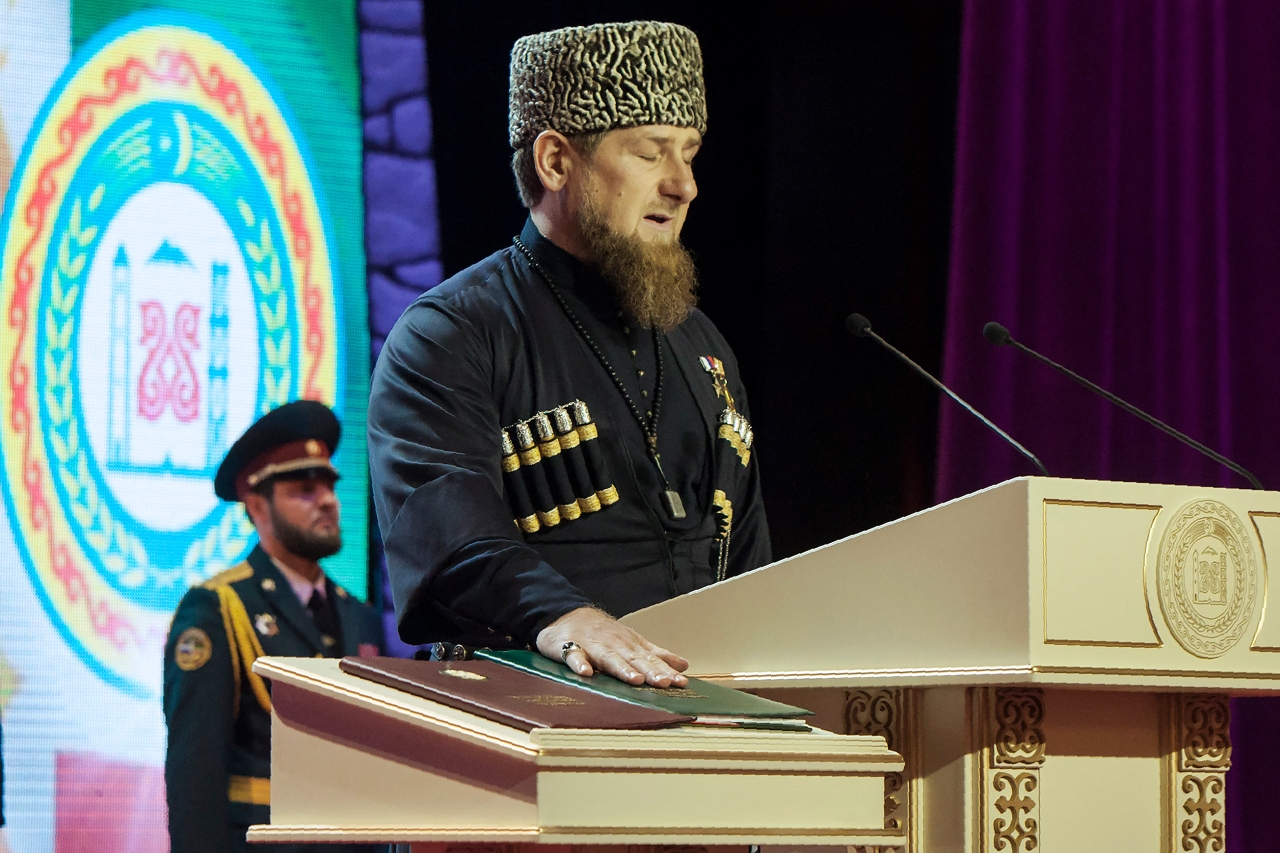
Organisations representing Caucasian minorities in Turkey have accused the Chechen leader Ramzan Kadyrov of being a “puppet” of Vladimir Putin, and compared Russia’s invasion of Ukraine to its past military campaigns that displaced their descendants from their historic homelands.
Following Russia’s assault on Ukraine in February, several organisations representing Circassians and other minorities from the mountainous region between the Black Sea and the Caspian Sea swiftly issued statements condemning the attack.
They also drew parallels between the war and Russia’s imperial expansion into the Caucasus in the 19th century, when hundreds of thousands of displaced Circassians and members of other minorities sought refuge in the neighbouring Ottoman Empire.
In a written statement, the Istanbul-based Federation of Circassian Associations said: “[The] New Tzar [Vladimir] Putin is dragging Ukraine and surrounding countries into a fire circle."
The Caucasia Foundation, which is also based in Istanbul, posted a tweet, saying that “our prayers and hearts are together with Ukrainian people. We, the Caucasians, make a call on everybody to condemn Russia and take to the streets.”
Kadyrov, a Putin loyalist who is head of the Chechen Republic within the Russian Federation, has been one of the most prominent cheerleaders for the war in Ukraine.
On the second day of the Russian invasion, he claimed his troops were already deployed on the battlefield, releasing several videos allegedly filmed on Ukrainian soil.
Often appearing in military uniform from his gold-bedecked offices in Chechnya's capital Grozny, Kadyrov has made a number of statements on the war, mostly threatening to devastate Kyiv or destroy Ukraine’s President Volodymyr Zelensky.
Repeatedly pledging allegiance to Putin, he has also encouraged his Chechen fighters to wage war as a “holy” cause.
While Russian and Ukraine were holding negotiations, and Moscow was retreating from areas around Kyiv, Kadyrov continued to talk about a Russian victory in Ukraine’s capital and offered 300,000 roubles ($3,700) to each voluntary fighter.
'Torture centres'
But members of Caucasian minorities in Turkey told Middle East Eye that Kadyrov did not speak for Chechens, or others with roots in the region, and described him as a mercenary and a charlatan.
“Following the war with Russia in 1999, Kadyrov, thanks to his clan ties and Putin, captured the power, appearing as a puppet of the authoritarian Russian government,” said Erol Karayel, a researcher on the Caucasus and a member of the Association of Circassian Foundations, referring to the brutal conflict which ultimately saw Moscow defeat Chechen separatists and reassert its control over the region.
For many Caucasians in Turkey, it has become a matter of shame that Chechnya, which had become a symbol of resistance against Russian aggression in the Caucasus, is now in Kadyrov’s hands.
Ali Viskhadzhiev, the head of Help and Solidarity for Caucasia’s Chechen Migrants (Kafkasder), is a Chechen who has been living in exile in Istanbul since the 1999 war.
“Everybody knows that Kadyrov is one of Putin’s puppets,” Viskhadzhiev told MEE.
"He’s pretending to be the leader who brought peace and stability to Chechnya, but in fact human rights violations are everywhere there.
"Kadyrov’s government is targeting Chechens and their families, who fought against Russians. He tries to make Chechens forget their past, their dignity, their ability to resist and even beat Russia.”
Karayel said there are “torture centres” in Chechnya, run by Kadyrov’s men.
“They abduct anybody they want. No questioning, no legal procedure but abduction. They abduct families of those who are in their eyes guilty.”
Several human rights organisations, including Human Rights Watch, have previously reported on such centres being run by Kadyrov's forces in Chechnya.
'Ukrainians helped us a lot'
Both Karayel and Viskhadzhiev stressed that their associations, as well as many other Caucasian foundations, fully supported Ukraine.
“Russians are trying to do the same in Ukraine now as they’ve done in the Caucasus," said Karayel.
"Turkey-based Circassians, and other Caucasian ethnic groups, of course reject Russia’s arguments [for the invasion].”
Recalling the wars of the 1990s in Chechnya following the breakup of the Soviet Union, Viskhadzhiev said: “Ukrainians helped us a lot.
"They even sent voluntary troops. Now, obviously we are together with them. Thousands of Chechens are fighting shoulder to shoulder with Ukrainian troops.
"Some of those Chechens are already settled there, but we hear that thousands of Chechens keep coming from Europe.”
Veysel Arihan, the head of the Caucasia Foundation, said: “This invasion, once again, revealed Russia’s dark side.
"It’s not odd that Russia invades an independent country and kills its people. This is what Russia has been doing for centuries,” he said, referring to Circassian, Crimean, Karachay and Meskheti exiles who were forced to leave their lands between 1800 and 1944.
'Our enemy is Russia'
Former Chechen commanders told MEE that while Turkey-based Chechens had not been directly involved in the war in Ukraine, they had been providing shelter for Chechen fighters and their families who had been forced to flee the country.
One Chechen fighter, who spoke anonymously, told MEE he had journeyed to Istanbul with his wife and five children as Mariupol, where they were living, was no longer safe.
“Our enemy is Russia and Putin. We have no time to lose with puppets like Kadyrov," said the fighter.
"We have battalions in the country’s south and east. We fought against Russia and its puppets in 2014 as well.”
When asked about Kadyrov and his promises to kill any Chechen who fights on the Ukrainian side, the fighter replied: “Kadyrov knows very well how to lure the media. That is why he keeps making absurd, sensational, but indeed stupid statements.
"We don't even care what he says,” he added loudly.
'They ignored us and labelled us mujaheed'
Another former Chechen commander, who also wished to remain anonymous, told MEE he had obtained Turkish citizenship a few years ago and survived at least two assassination attempts.
“We lost at least 300,000 people in the Chechen wars," he said.
Figures for how many fighters and civilians died in the Chechen wars vary widely, from the tens to the hundreds of thousands, with no universally accepted figure.
"We tried to explain our cause, and its importance to stop Russian re-expansion to the West, but they ignored us and labelled us mujaheed [jihadist fighters]," the commander continued.
"Yes, we were mujaheed, fighting in Allah’s cause against tyranny. But Chechnya had a strategic importance for keeping the Caucasus safe from Russia.
"What happened later was Russia's invasion of Georgia [in 2008]. Also, now, Russia is the unquestionable patron of the region.
“So, Kadyrov is an unimportant man. His blood is Chechen, but Chechnya is not ruled by Chechens. Kadyrov is like an equerry of Putin. He is nothing, no one.”
'Kadyrov’s men hunted them there as well'
Kadyrov ascended to power after his father, Ahmad Kadyrov, was killed in a bomb attack in Grozny in 2004.
He and his father had fought against Russia in the first Chechen war (1994-96), or at least supported warring Chechen factions against Moscow.
Ahmad Kadyrov had received a religious education in Bukhara and at the Islamic University in Tashkent, both in Uzbekistan, during the 1980s.
While other Chechen leaders, such as Jawhar Dudayev and Aslan Mashadov, were former USSR generals, with limited religious education, Ahmad Kadyrov was regarded as the nation’s mufti and spiritual leader due to his Sufi connections.
In the second Chechen war, which took place between August 1999 and April 2009, Ahmad Kadyrov broke from his former comrades, forging an alliance with Putin, who was then Russia’s prime minister, and set about eliminating warring Chechen factions and building his own power base.
Exiled Chechens have long accused both Kadyrovs of ruling by fear and oppression. They point to the deaths of nine Chechen dissidents in Turkey between 2008 and 2015, with the former Chechen commander telling MEE that the actual figure was much higher.
“I can tell you that a lot of Chechens were killed," he said.
"Many others decided to leave Turkey for Europe due to security concerns. Yet, Kadyrov’s men hunted them there as well,” he added, referencing an assassination carried out in Germany in 2019.
The commander told MEE that Turkey had taken action in recent months to protect Chechen dissidents, including last year arresting four Russian citizens on charges of planning murder.
In response to the case, Kadyrov threatened to erect a statue of Abdullah Ocalan, the head of the outlawed Kurdistan Workers' Party (PKK), in Grozny.
Middle East Eye delivers independent and unrivalled coverage and analysis of the Middle East, North Africa and beyond. To learn more about republishing this content and the associated fees, please fill out this form. More about MEE can be found here.


